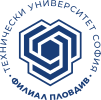ECTS code: 5.13 General Engineering
Qualification awarded: BEng
Education forms: Full-time
Term of education: 4 years
Final examination: Development and public defense of a diploma project for BEng
Admission requirements: Admission exams or tests in mathematics. Specific requirements: Internationally recognized certificates for English or pass a test in English.
Access to further studies: After completing the master’s degree, the education can continue in the scientific-educational degree Magister – MEng in the respective or related specialty.
Programme importance: Specialty Industrial Engineering combines classical and modern trends in the design and operation of industrial systems.
General characteristics of the education:
The education is conducted under the methodological guidance of the Faculty of English Engineering Training at the Technical University – Sofia. The specialty “Industrial Engineering” is a mix of technology dealing with optimization and management of complex processes and systems. The course is both theoretical and practical.
During the training period, students are given the opportunity to build their initial job skills. They gain a range of knowledge and skills in the design, implementation and management of complex systems and processes. The specificity of the training in the specialty consists in combining fundamental knowledge in the modeling of processes in technical and organizational systems, electrical engineering, electronics, computer science, management theory, with general engineering, natural sciences, humanities, and economics, as well as the acquisition of foreign language. The professionalism of the trainees is built through a precise selection of the studied theoretical material, and skill for self-learning is developed. Disciplines that are common to the specialty are studied, such as management of industrial production and production design, computer integrated production, automation and control of technological processes, industrial production systems; production strategies, control systems theory. Electives of courses are characteristic of training in the specialty of Industrial Engineering.
Educational and professional goals:
Graduate in Industrial Engineering should be able to:
– To participate in teams for design, implementation and development of processes and systematization of services, services or management sectors;
– Achieving efficiency in management and management positions;
– Work efficiency with external and internal team members in international company;
– Assessment of the impact of the systems and processes on the capabilities of the organization;
– Determining a place for business activities in the global context of the enterprise;
– To use the principles of management and apply a systematic approach in decision making;
– Applies skills and knowledge to promote the successful implementation of complex systems;
– Evaluation of the efficiency of complex processes and discovery of the possibilities for their improvement.
Employment of the graduates:
The industrial engineering engineer may perform production, design and management activities in: industrial production; in the installation, adjustment and operation of automated technological lines in all areas of industry, transport, energy; in the production and management of means of production.
Graduates may be employed as system consultants and analysts or designers of such systems, managers or consultants in companies, programmers or application developers.
They can work in research, design, engineering companies and organizations to build complex technical, economic and organizational management systems.
